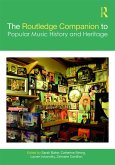1. ENGLISH VERB -- 'GET'
2. Meanings of Main Verb 'GET'
3. GET + THIRD FORM OF VERB
3A. Get + Third Form of Verb
3B. Have/Has + Got + Third Form of Verb
3C. Got + Third Form of Verb
3D. Had + Got + Third Form of Verb
3E. Will + Get + Third Form of Verb
3F. Will + Have + Got + Third Form of Verb
3G. Modal Verbs + Get + Third Form of Verb
3H. Getting + Third Form of Verb
3I. Verb + To + Get + Third Form of Verb
4. GET TO + FIRST FORM OF VERB
4A. Get To + First Form of Verb
4B. Got To + First Form of Verb
4C. Will + Get To + First Form of Verb
5. HAVE + GOT TO + FIRST FORM OF VERB
6. 'GET' + ADJECTIVE
7. 'GET' + USED TO
8. Use of 'Get' In Causative Sentences
9. English Idioms With 'Get'
10. Phrasal Verbs With 'Get'
11. Other Sentences With 'Get'
12. Conjugation of Verb 'Get'
Exercises: 1(A) and 1(B)
Exercises: 2(A) and 2(B)
Exercises: 3(A) and 3(B)
Sample This:
1. ENGLISH VERB -- 'GET'
Get is an irregular verb. Its three forms are as follows:
First Form (Base Form) -- GET
Second Form (Past Form) -- GOT
Third Form (Past Participle) -- GOT/GOTTEN
Present Perfect of 'Get' Have/Has Got Have/Has Gotten
Past Perfect of 'Get' -- Had Got Had Gotten
Gotten (past participle form of 'get') is generally used in Spoken American English. Gotten is incorrect in British English.
-ING Form of 'Get' -- Getting
Infinitive of 'Get' -- To Get
IMPORTANT NOTE:
"Have/has got" is the 'Present Perfect' Form of 'get'. But it is mainly used in the present indefinite (simple) tense. "Have/has got" is generally used with 'simple present meaning' to show characteristics, ownership, illnesses, and relationships.
'Have got' and 'has got' have the same meaning as 'have' and 'has' respectively. They can be used as present indefinite (simple) tenses.
Affirmative Sentences --
They have got computers. = They have computers.
He has got a computer. = He has a computer.
Negative Sentences --
They have not got computers. = They do not have computers.
He has not got a computer. = He does not have a computer.
Note:- Negative form of 'have/has got' is made by adding 'not' between 'have/has' and 'got'; whereas, the negative form of 'have/has' is made by using 'do/does not'.
Interrogative Sentences --
Have they got computers? = Do they have computers?
Has he got a computer? = Does he have a computer?
Note:- Interrogative pattern of 'have/has got' is made by putting auxiliary verb 'have/has' before the subject; whereas Interrogative pattern of 'have/has' is made by putting auxiliary verb 'Do/Does' before the subject.
However, in past events, you should prefer using 'had' instead of 'had got' ' to show characteristics, ownership, illnesses, and relationships.
More Common -- They had computers. They did not have computers. Did they have computers?
Less Common -- They had got computers. They had not got computers. Had they got computers?
Also Note: Use of 'have got' and 'has got' in present perfect tenses:
Pattern: Have/has got + past participle of the verb
A project has got stuck. Many projects have got stuck.
And, in past perfect tenses, you should use 'had got'.
A project had got stuck. Many projects had got stuck.
ALSO NOTE:
GOTTA - Very informal and non-standard way of referring to 'have got to' or 'have got a' in writing. This form is grammatically incorrect. Avoid using writing this form.
English Verb 'Get' can be used in a number of patterns and has lots of different uses and meanings.--
A. "Get" is used as a main verb with many different meanings.
B. "Get" is used in several idioms.
C. "Get" is used in several phrasal verbs.
Dieser Download kann aus rechtlichen Gründen nur mit Rechnungsadresse in A, B, CY, CZ, D, DK, EW, E, FIN, F, GR, H, IRL, I, LT, L, LR, M, NL, PL, P, R, S, SLO, SK ausgeliefert werden.









